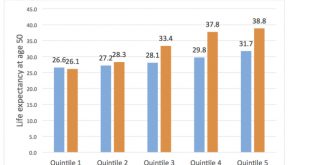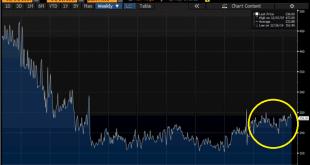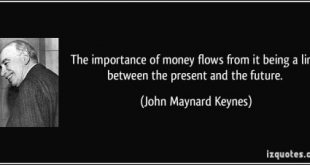from Asad Zaman Environmentalist David Suzuki hits the nail on the head. The number of ways that economic theory systematically blinds you to the realities of the world we live in is almost uncountable. When Henry George’s land tax became widely popular, economists “disappeared” land as a factor of production from economic theories, merging it illegitimately with capital. Money is made to “disappear” by using the quantity theory of money to claim that money is veil. This makes it...
Read More »The benefits of free trade — a fallacy based on a fantasy
from Lars Syll Plenty of people will try to convince you that globalization and free trade could benefit everyone, if only the gains were more fairly shared … This belief is shared by almost all politicians … and it’s an article of faith for the economics profession. You are right to reject it … It’s a fallacy based on a fantasy, and it has been ever since David Ricardo dreamed up the idea of “Comparative Advantage and the Gains from Trade” two centuries ago. The best way to prove that...
Read More »GDP, Repatriation, Credit check
A very low initial print, with inventories down as expected as was consumption growth. And the investment data that did grow strongly is volatile and subject to reversal which would limit q2 growth as well. Expectations have come off some but remain trumped up, even as the hard data shows ongoing weakness. And note how q2 forecasts are now starting up where q1 forecasts were this time 3 months ago: Highlights The weakest showing since the last recession for consumer...
Read More »How’s the Eurozone doing?
On 6 April, Mario Draghi made a speech titled ‘Monetary policy and the economic recovery in the Euro Area’. I would have emphasized the existing disequilibria a little more: unemployment in Germany is not far away from ‘low’ but this comes at the cost of an 8% of GDP surplus of the current account. German domestic demand (investments, public and private consumption) is i.e. about 10% too low to guarantee low unemployment. See also this recent Eurostat press release, which shows that,...
Read More »Open thread April 28, 2017
America’s hidden pains
from William Neil We begin with some gross numbers from Das’ Age of Stagnation: the loss of wealth from the Great Recession of 2008-2009. Citing the work of three economists at the Federal Reserve Bank of Dallas (Tyler Atkinson, David Luttrell and Harvey Rosenblum), the figures they put on the loss to the U.S. economy come to 6-14 trillion dollars, “equivalent to U.S. $50,000 to U.S. $120,000 for every American household, or 40-90% of one year’s economic output”. We’ve seen figures of...
Read More »Mind the growing retirement gap
from David Ruccio I find myself thinking more these days about the fairness of Social Security and other government retirement benefits. One reason, of course, is because I’m getting close to retirement age—and, as I discover each time I raise the issue with students, young people don’t think about it much.* Another reason is because Social Security (in addition to Medicare, Disability, and other programs) is the way the United States creates a collective bond between current and former...
Read More »The market paradigm versus the production paradigm
from Robert Wade Why have the large majority of professional economists, especially in the academy and in western-dominated international organizations like the World Bank and IMF, been committed to free trade policy, downplaying theoretical and empirical weaknesses in order to remain so? The teaching of economics in just about all universities of the western world, and in large parts of the developing world, socializes students into belief in the rightness of the “market” paradigm, and...
Read More »Mortgage purchase index, Saudi pricing
You can see from the chart that growth of mortgage applications for home purchases has been near 0 for quite a while, and remains historically depressed. The lines zigging downward are Saudi initiatives to lower prices, and as price setter they will necessarily prevail for as long as they have excess capacity:
Read More »Keynes on ‘money neutrality’ and the ‘classical dichotomy’
from Lars Syll Paul Krugman has repeatedly over the years argued that we should continue to use neoclassical hobby horses like IS-LM and AS-AD models. Here’s one example: So why do AS-AD? … We do want, somewhere along the way, to get across the notion of the self-correcting economy, the notion that in the long run, we may all be dead, but that we also have a tendency to return to full employment via price flexibility. Or to put it differently, you do want somehow to make clear the...
Read More » Heterodox
Heterodox






